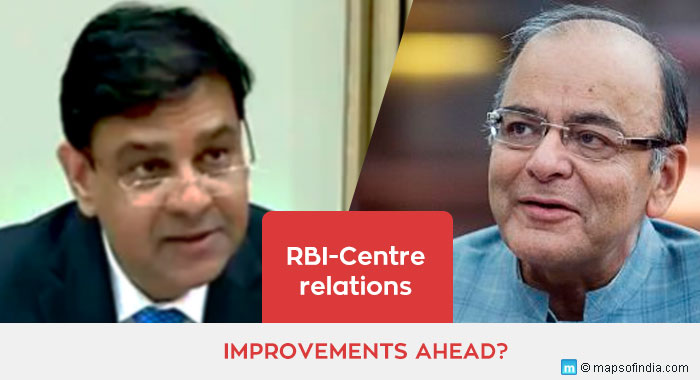On December 10th, 2018, Urjit Patel resigned from his post as the governor of Reserve Bank of India (RBI), citing personal reasons. However, the resignation only served as a reminder of the ugly truth- the ongoing feud between RBI and the central government.
Now, Shaktikanta Das has been appointed as the 25th governor of RBI by the government. The announcement came within a day of Patel’s resignation. However, speculations around Das all boil down to one question.
Will the new governor succeed in mending the tattered ties between the Centre and the Reserve Bank of India?
What caused the feud?
The relations between RBI and the central government have been strained for a while, with the essence of it being the autonomy of RBI, more or less. Is the Reserve Bank of India a purely autonomous institution, or a functionary of the government’s Finance Ministry? Or, somewhere in the middle?
Issues between the country’s central bank and government have been around for quite a while now, from even before Patel stepped in as the RBI governor. His predecessor and formal boss Raghuram Rajan had been at a cross with the center as well. In his tenure of three years, Rajan did not mince his words when it came to criticising the State’s functioning. He was also the first RBI governor in over 20 years to not have been given a term extension.
The case with Urjit Patel, is, however, more interesting. He took over the RBI governor office in September 2016. When the BJP government issued the notice of demonetisation in November of the same year, Patel was among those who stood in favour. So, his journey from being a supporter of the government (or of being non-defiant) to the very public, heated arguments, and finally, to his resignation- has been rather eventful.
The NPA rift
The country has been in an NPA crisis since even before 2018. NPAs or non-performing assets are those loan amounts on which the interest and/or principal installment hasn’t been paid in some previously specified amount of time.
Earlier this year, when RBI introduced new guidelines for NPAs, the government declared them too harsh on the public banks. The Reserve Bank of India declared 180 days to be the new deadline before a loan is declared an NPA. Consequently, after a missed deadline, the matter must be taken for settlement in bankruptcy courts. According to the Finance Ministry, this will cause tremendous pressure to fall on banks and the industry.
Since then, the government has been putting pressure on RBI to lax the restrictions.
Interest rates and loans
The country’s economy has been in somewhat a swamp recently. In the midst of this, the government has been asking RBI to cut down interest rates, increasing the liquidity. Moreover, there have been disagreements regarding loan provisions.
Matters became tenser when instead of slashing down the interest rates, RBI ended up increasing them. Many believe the major concern behind government’s insistence is the upcoming Lok Sabha elections. It will be in BJP government’s interest if the party heads into polls with a seemingly appealing economy.
RBI’s autonomy
One way or the other, the entire situation boils down to the elementary problem: the unrest over government’s alleged hampering of RBI’s autonomy. In October 2018, the deputy governor of RBI, Viral Acharya made some strong, direct jibes at the government.
“Governments that do not respect central bank independence will sooner or later incur the wrath of financial markets, ignite an economic fire, and come to rue the day they undermined an important regulatory institution”, he said. Acharya also made statements about how the government’s way of dealing with the economy was similar to that of a T-20 match, while the RBI made plans like a test match.
Many other critics of the government’s dealing have mentioned how it has been working with short-term goals which might prove to be a recipe for disaster, dismantling the economy. Even the International Monetary Fund (IMF), recently talked about the autonomy of financial institutions, referring to the current situation in India.
“International experience shows that operational independence is important for a central bank to carry out its responsibilities”, said Garry Rice, IMF Director for Communications.
The blame game
In a rare public display of dissatisfaction, both sides do not miss a chance of going at each other past few months. Even Finance Minister Arun Jaitley also came forward, blaming the central bank for the increasing number of bad loans. “They kept pushing the truth below the carpet”, said Jaitley, blaming RBI of being ignorant about the bad loans from 2008-14.
The feud has been ongoing from both sides, so much so that, earlier Viral Acharya was rumoured to have resigned from his post. There were speculations about Patel’s stepping down as well, but many believed the situation was under control post the recent RBI meeting.
Conclusion
It is the first time in over 30 years that an RBI governor has resigned from his post. Patel’s predecessor, Rajan was also the first governor in a long time to have not been given an extension. And now, while Patel gave a very brief statement, announcing his leaving, he thanked his colleagues but made no mention of the government itself.
Clearly, for Shaktikanta Das, a 1980 batch IAS officer, the shoes would be a tough pair to fill. Not only will he have to ensure a transition towards peace between the two institutions, but also, ascertain that RBI’s freedom does not suffer. Will he be able to do it? Only time can tell.





